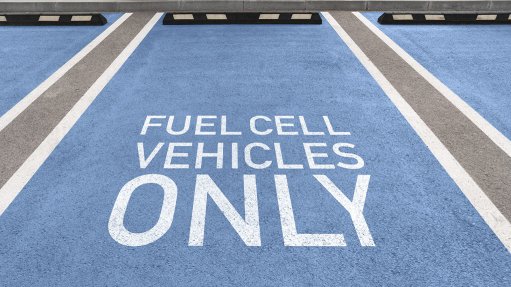
According to the World Platinum Investment Council (WPIC), the H2 Moves Berlin pilot project, in Germany, will show how fuel cell electric vehicles (FCEVs) are suitable for everyday use as a sustainable passenger mobility solution.
Through the project, partners Anglo American, Toyota Germany and the SafeDriver Group have launched Germany’s largest-ever FCEV taxi fleet using Toyota’s second-generation hydrogen fuel cell Mirai.
Up to 200 FCEVs will subsequently be accessible for ordering through the Uber app on the streets of the city. As users become accustomed to the comfort and efficiency of hydrogen-powered electric vehicles, it is hoped that both the driving and riding experiences will turn more people into FCEV supporters.
Berlin was chosen as the site of the initiative because of its well-established hydrogen strategy, which is aimed at driving the advancement and uptake of fuel cell and hydrogen technology. This is consistent with the national hydrogen strategy of Germany, which offers a cogent framework for the production, transportation, and use of hydrogen.
Germany, with 105 hydrogen refuelling stations, had the most such stations in Europe as of the end of 2022. The hydrogen for the project is coming from H2 Mobility Deutschland, which operates four hydrogen refuelling stations in Berlin.
A proportion of the project’s hydrogen will be from renewable sources, with plans to increase this over time.
While the WPIC believes there is no question that expanding hydrogen mobility through the widespread use of FCEVs offers significant promise in terms of decarbonising transportation, it has stated that expanding market penetration is comparable to a “chicken and egg” situation.
“Car manufacturers rely on supporting infrastructure like refuelling stations to drive consumer demand, while only the assurance of a guaranteed customer base helps justify investment in refuelling stations,” the WPIC said.
Water and heat are the only byproducts produced during the electrical power conversion process in an FCEV, which transforms chemical energy into electrical energy using a platinum catalyst.
When fuelled by hydrogen produced from renewable sources, FCEVs have zero tailpipe emissions and provide a completely carbon-free mode of transportation. They can travel between 500 km and 700 km before needing to refuel, and they refuel quickly in a manner similar to that of petroleum or diesel vehicles.
The WPIC estimates that, while the demand for platinum related to hydrogen is still small at present, it will increase significantly through the 2020s and beyond, accounting for up to 35% of yearly demand for platinum by 2040.